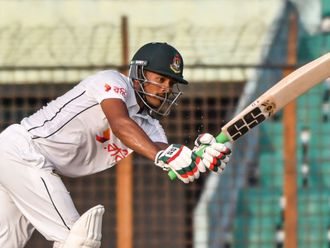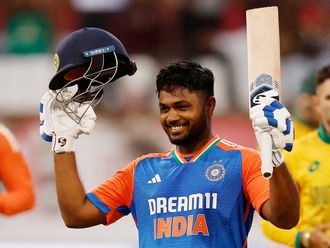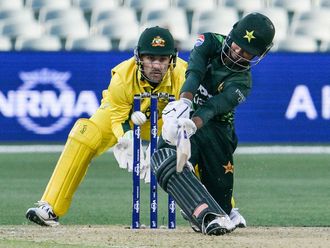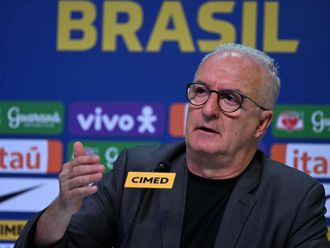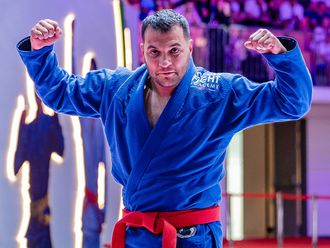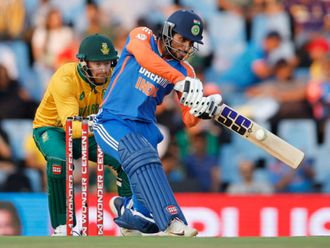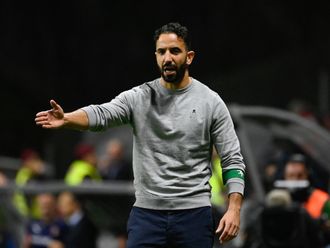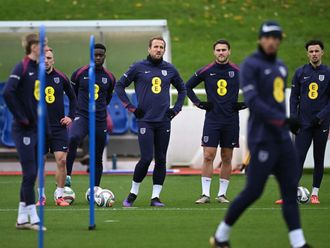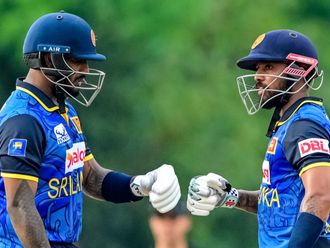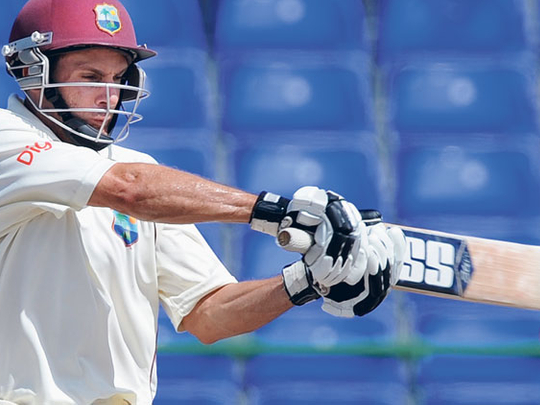
Dubai: For the lovers of West Indies cricket who have been despondent about the crisis in the game there, there seems to be finally some good news. While the success of the Twenty-20 World Cup there last month could not have been better-timed, the West Indies Cricket Board (WICB) has taken up a proactive role towards restoring the game to it's earlier health in the Caribbean.
Ernest Hilaire, the new CEO of West Indies board and the Tournament Director of the T-20 World Cup, says that they have initiated some constructive steps to re-build the game but it will take at least three years for the results to show. The need of the hour, as Hilaire says, is the resources as also to prevent Caribbean youth from falling prey to the negativities of society.
Speaking to Gulf News exclusively from St Lucia, Hilaire, a PhD from London School of Economics who has held several key administrative positions in the past, elaborated on a variety of subjects. Following are the excerpts:
Gulf News: Do you think successfully conducting the T-20 World Cup last month could act as a shot in the arm for West Indies cricket?
Ernest Hilaire: I think following the perception that the World Cup 2007 was a failure in relation to the atmosphere and crowd support, we were determined to allow a natural setting and celebratory support for cricket to prevail. This has shown the people of the region the value of T20 cricket for spectators and will set a solid basis for our programmes.
The West Indies team have, in recent times, sporadically done well in the shorter format of the game but failed in Test cricket. How long do you think it would take them to show a sustained improvement?
The first task before us is it to make the current team is more competitive by providing the support needed for a holistic improvement in their game. We have just opened the High Performance Centre [on May 30] which will prepare the next generation of West Indian international players. They will be in training for two years and it is expected that there will gradual improvements leading to a highly competitive team within three years.
Since you took over as the CEO of WICB last year, I think your first challenge was resolving the dispute with the players' body. How did you approach the problem?
We have tried to channel our disagreements and differences into a dialogue which replaces the public and open expressions of conflict at every instance. It is very much a work in progress and still early in building that new relationship, but I am optimistic that we will continue to walk that road towards maturity in our dealings.
Given the ambitious plans that WICB has in store, the question of resources seems to be of crucial importance…
Yes, we are working on establishing a commercial programme that can provide the resources to finance the revival of cricket in the region. The commercial programme is really critical as the small business space and limited commercial opportunities in the region make it difficult to raise the resources that are necessary.
Over the last decade or so, we have heard a lot about the talent drain from the Caribbean, with the young generation migrating to US or Canada and taking up basketball or football. What's your strategy, both in short and long term, to stop this?
The challenges facing talent in the West Indies is less about migration and other sport — although it has an effect — and more from the societal issues which affect our young people. There is talent in the West Indies — natural and in abundance.
However, too many youth are falling prey to the negativities of the society and not finding the positive channels for the nurturing of their talents. We need to make our young people fall in love with cricket again and to create the grassroot initiatives and community programmes to engage them. Having done so, we need the structures of support that can nurture them to avoid the temptations of negativity. Only then can we compete with the other sports that have these structures in place as well as confront the societal ills that have become so rampant.
Have you thought of using some of the West Indian legends as cricket ambassadors to keep West Indies as the cohesive force in cricket?
The simple truth is that they have been involved and still many are involved. The present Board includes two of the greatest West Indian cricketers — Clive Lloyd and Joel Garner. The Cricket Committee comprises former cricketers. Of course, we can always benefit from greater involvement.



